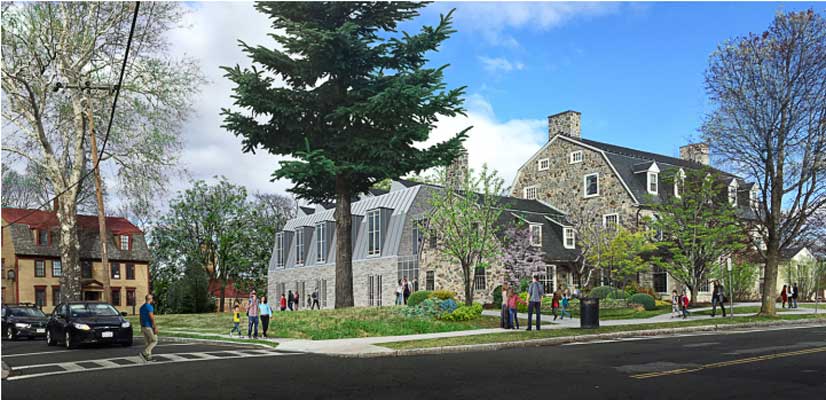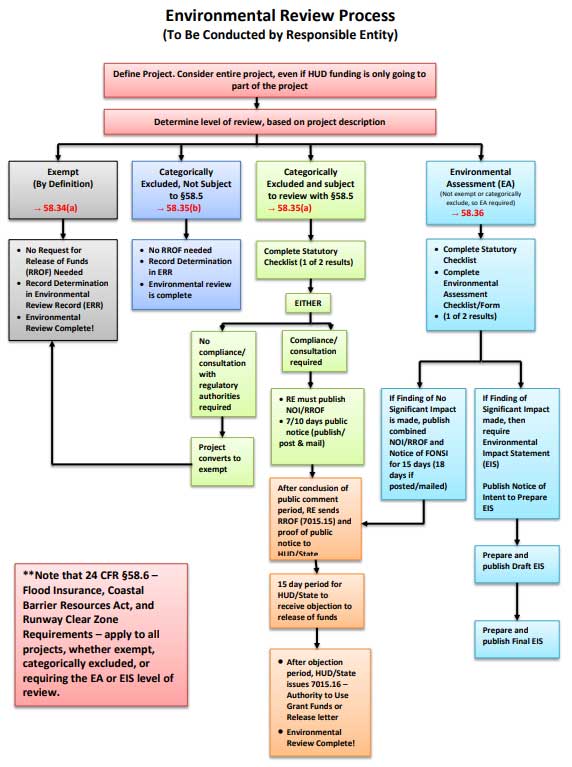In The Face of Public Criticism, Trustees Praise and Defend Jones Library Director

Approve Glowing Performance Evaluation in Face of Public Criticism
The September 6, 2024 meeting of the Jones Library Board of Trustees opened with a pair of critical comments from Amherst residents.
Arlie Gould of South Amherst objected to Trustee and former Amherst Forward leader Farah Ameen urging in a Daily Hampshire Gazette opinion piece, “don’t let the perfect be the enemy of the good.” Ameen’s complaints included citizens “abusing the information request process to harass the library director,” “speaking disrespectfully toward the director, trustees and designers during public comment,” and “insisting on the expensive preservation of existing millwork.”
See related Jones Library Director Suppresses Bad News About Expansion Project
Gould pointed out that preserving original millwork that enhances a nationally recognized historic structure is not seeking perfection but is simply asking to protect a valuable public asset according to a process governed by state and federal law.
Maria Kopicki asked when the trustees would be addressing the suppression of letters sent to Library Director Sharon Sharry from the Massachusetts Historical Commission identifying several adverse effects to the historic library resulting from the proposed project design. The letters and the state’s rejection of historic tax credits which the town had been counting on to generate $1.8 million were not made available to the public nor to the Town Council who voted to increase borrowing for the controversial project by $10 million in December 2023.
Kopicki also protested value engineering design decisions made outside of Jones Library Building Committee (JLBC) meetings and without a public process. The JLBC last met on July 17.
JLBC Chair Austin Sarat responded that the three recent undeliberated design modifications represent subtractions of value engineering decisions and not actual changes. Two of these – the elimination of bid alternatives to replace the slate roof with asphalt shingles and to repair rather than replace windows – were imposed by the Amherst Historical Commission.
The third change was backing off from the proposed removal of much-admired and irreplaceable millwork. Said Sarat, “We had originally planned to take out the historic millwork, but the library building committee decided not to.”
This assertion is somewhat misleading. An unpublished email from Director Sharry to the JLBC and Library Trustees shows that the decision had been made prior to a July 17 discussion by the JLBC. On July 16 Sharry writes, “to be discussed tomorrow night is the news that Austin and I have authorized Finegold Alexander to retain the Jones’ historic millwork as part of the fall 2024 bid documents.”
Also not fully explained is the impact to the historic millwork in the new design. Ellen Anselone of Finegold Alexander Architects (FAA) told the JLBC on July 17 that instead of removing millwork, the designers would be looking to limit the amount of millwork that needed to be cut into to accommodate plumbing and electrical systems. Necessary cuts would be repaired to match.
Any implication that interior millwork would be treated according to the 2023 design, i.e. removed, cleaned and replaced after asbestos abatement, is apparently false. Detailed schematics of the extent of millwork changes in the new design have yet to be produced.
Personnel, Planning & Policy Committee Chair Tamson Ely presented Library Director Sharry’s annual performance evaluation. While acknowledging that community division over the costly library project has resulted in a tumultuous year, the report concludes with praise. “The Board applauds her progress and dedication, and her consistent strong leadership of the Library.”
Trustee President Austin Sarat took the opportunity to scold the trustees for not doing more to defend Sharry against accusations that she suppressed Massachusetts Historical Commission letters.
“It is important that the library trustees not be silent as things are being said in public that might be thought to cast a shadow on the library director,” he said. “If any of you have questions about Sharon’s conduct in relationship to letters received from the MHC you should say so.”
Left unaddressed by Sarat was the extent to which the trustees knew about but kept secret the MHC letters.
The trustees voted unanimously to give Sharry a vote of confidence.

Timetable for Re-bidding Project is Uncertain
During his JLBC report Sarat announced that, “The precise date that we’re going to go out for bid is a little bit in flux. The hope is that we would be able go out for bid by mid-September.”
A long ignored but essential step in the building project schedule is conducting the public environmental and historic preservation reviews required of initiatives that benefit from state and federal funding. The $46.1 million library project has been awarded a construction grant of $15.6 million from the Massachusetts Board of Library Commissioners and $2.1 million in funding from the federal agencies, National Endowment for the Humanities (NEH) and the U.S. Dept. of Housing and Urban Development (HUD).
Bob Peirent, the Town of Amherst’s Special Capital Projects Coordinator, has been tasked as the point of contact for these reviews that include processes mandated by the National Environmental Policy Act (NEPA) and Section 106 of the National Historic Preservation Act.
The Amherst Historic Preservation Coalition, an alliance of citizens who seek “to preserve and protect properties in Amherst, Massachusetts which have architectural, historic, educational, or general cultural significance for public edification, use and enjoyment,” has written to Peirent expressing concern that rushing the project out to bid could jeopardize grant funding.
The group has pointed out a HUD policy that states that required reviews must be completed before a project invites construction bids, or it could be committing a “choice-limiting action” that would render the project ineligible for funding.
The HUD report Historic Preservation Basics states
“The Officer of Environment and Energy (OEE) at HUD Headquarters has confirmed that OEE policy does not allow bids before the environmental review is complete. The purpose of this statement is to confirm that it is HUD policy to not allow bids for choice-limiting actions (such as construction, demolition, etc.) before the environmental review is complete.”
The policy safeguards grant recipients from producing expensive construction documents that may need to change and be re-bid if an environmental or Section 106 historical preservation review requires design changes to be made.
The Amherst Historic Preservation Coalition, which has been designated a consulting party to the Section 106 historic preservation review, also asked when a detailed description of the latest value engineering changes would be communicated to the State Historic Preservation Officer (SHPO) at the Massachusetts Historical Commission. The Section 106 Review is predicated on an evaluation of adverse effects by the SHPO.
Peirent responded, “We anticipate additional information will be available within the next few weeks regarding the adverse impact determination, and it will be provided to all consulting parties and the public.”


The old adage, “if these walls could talk,” suggest the historic Jones Library would rue the day the current Library Director and Library Trustees came onboard. Their arrival ushered in a decade of neglect of basic maintenance, a failure to upgrade infrastructure as well as a dogged determination to demolish the 1993 ADA compliant, brick addition that has a metal roof with a 50-100 year lifespan. The Library Director and Trustees have consistently shown a disregard for preserving the historic Jones Library building, and a grim persistence in the quest for an expanded “flagship” building that the town does not need and cannot afford. Right now, the historic Jones Library is a stone and brick structure whose “crime” is a leaky glass atrium that needs to be replaced along with needed infrastructure upgrades and TLC from a decade of neglect. If the demolition-expansion moves forward, the brick addition will be replaced by a larger, generic, big-box-store style building clad in higher maintenance, fiber cement siding. Residents will be left with a Jones Library that will no longer proudly proclaim its place in Amherst town history. If you listen closely, you can almost hear the sobs from the Jones Library building itself.
The claim, made repeatedly, that 2/3 of the Amherst community wildly supported this failed plan needs repeated debunking.
Only 3000 people voted yes, of 5000 people that voted, in our town of 20,000 year round residents, plus 20,000 students. And of those 3000 “supporters,” where are the 3000 donations?
Maybe part of the reason no board or council or committee will bravely determine that this project is too broken is that they don’t want to thwart the public will. But if 2/3 of Amherst are enthused about a humongous, exorbitant, excessive project, where are the donations?
I vote for a recount, considering how far off track we have traveled. Or at least for our town leadership to realize that it never had more than 7.5% support back then, when people said yes to a better plan at a lower price.
Well said, Ira! But as a public service to the community, for both information and entertainment, in the spirit of the much-missed “Obama anger translator” from SNL, please let me play the role of a “nice-Ira translator” here:
Nice-Ira: … a better plan …
Translator: … a barely less awful plan …
Nice-Ira: … at a lower price.
Translator: … at a still exorbitant price.
I don’t fully understand Ms. Sharry’s role, it seems her job would only be to direct day to day operations of the library and leave any “possible” expansion ideas in the hands of the trustees. But perhaps this is from the perspective of the layman.
If people want to offer feedback they can write to the trustees (trustees@joneslibrary.org), and the various town officials we entrust. To get on my soapbox, the trustees and “some” town officials are asking for an astronomical amount of money, to be paid mostly with property tax, an unsustainable system, a regressive tax, a tax that by definition rewards the wealthy and punishes the destitute. If you want more information as to the damage this type of tax does you can look at a opinion piece that appeared in The New York Times in April, written by Dr. Andrew Kahrl of the University of Virginia, that addressed, in his words, the cruelty of property tax. Less direct to the point, but still of value, is a book written by this individual entitled, The Black Tax, a copy of which that happens to be available at the library.
The trustees ensured that Sharon Sharry would be a political advocate as well as a library director by making it part of her performance evaluation. E.g. one of the goals she was evaluated on in 2021 was “Continue to work on the Library’s renovation/expansion project including holding community outreach sessions and seeking a positive Town Council vote.”
To get a glimpse at Tom McBride’s suggested reading:
https://press.uchicago.edu/ucp/books/book/chicago/B/bo213447492.html